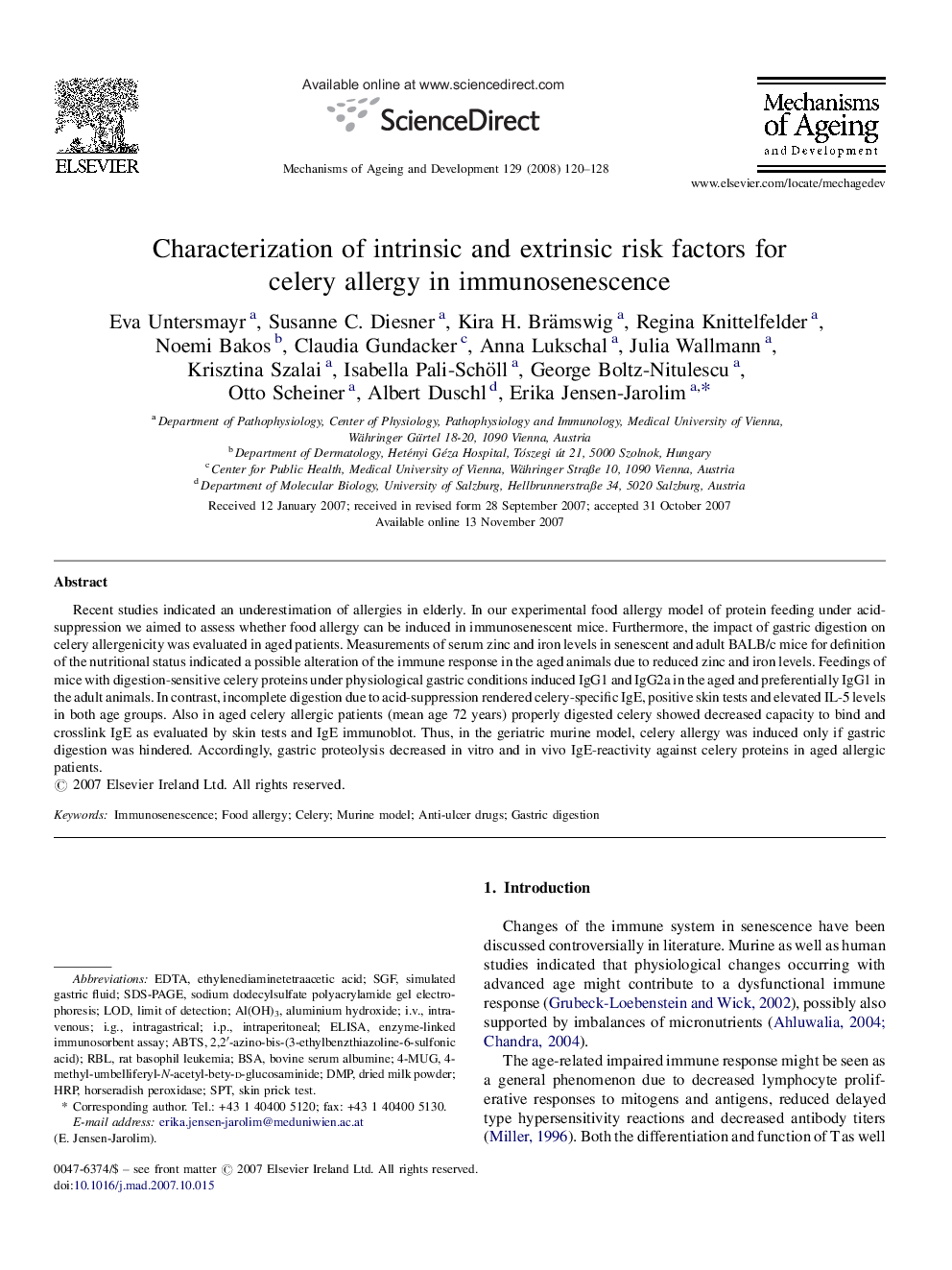| Article ID | Journal | Published Year | Pages | File Type |
|---|---|---|---|---|
| 1919640 | Mechanisms of Ageing and Development | 2008 | 9 Pages |
Recent studies indicated an underestimation of allergies in elderly. In our experimental food allergy model of protein feeding under acid-suppression we aimed to assess whether food allergy can be induced in immunosenescent mice. Furthermore, the impact of gastric digestion on celery allergenicity was evaluated in aged patients. Measurements of serum zinc and iron levels in senescent and adult BALB/c mice for definition of the nutritional status indicated a possible alteration of the immune response in the aged animals due to reduced zinc and iron levels. Feedings of mice with digestion-sensitive celery proteins under physiological gastric conditions induced IgG1 and IgG2a in the aged and preferentially IgG1 in the adult animals. In contrast, incomplete digestion due to acid-suppression rendered celery-specific IgE, positive skin tests and elevated IL-5 levels in both age groups. Also in aged celery allergic patients (mean age 72 years) properly digested celery showed decreased capacity to bind and crosslink IgE as evaluated by skin tests and IgE immunoblot. Thus, in the geriatric murine model, celery allergy was induced only if gastric digestion was hindered. Accordingly, gastric proteolysis decreased in vitro and in vivo IgE-reactivity against celery proteins in aged allergic patients.
